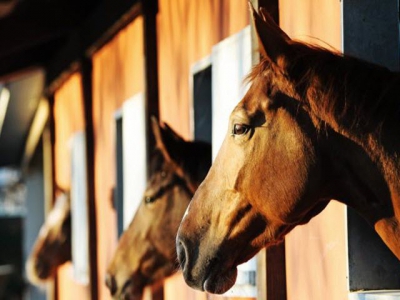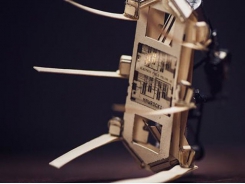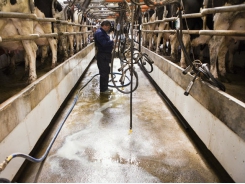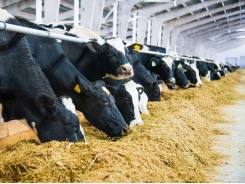Prebiotics may do more harm than good in horses

Researchers discover that prebiotics take effect too early in horse's stomach.
Prebiotics are only able to help stabilize the intestinal flora of horses to a limited degree, according to a news release from Martin-Luther-Universität Halle-Wittenberg (MLU). Before they can reach the intestines, commercially available supplements partially break down in the animals' stomachs, which can lead to inflammation of the stomach lining.
This was discovered by researchers at MLU and the University of Veterinary Medicine Hannover (TiHo) in Germany. The team suggested preparing prebiotic food supplements so they don't take effect until they reach the large intestine.
The study appeared recently in the journal PLOS ONE.
Prebiotics are indigestible fibers that can stimulate the growth and activity of certain beneficial bacteria in the large intestine. They are often added to horse feed in order to stabilize horse health.
"Horses have a relatively small, non-diverse core microbiome and are, therefore, very susceptible to digestive disorders," professor Annette Zeyner, head of the animal nutrition group at MLU, explained.
However, she said insufficient research has been conducted on whether the use of prebiotics actually does produce the desired effects. Her research group explored this question in partnership with professor Gerhard Breves' lab at TiHo.
For the study, the team investigated the effect of feeding horses Jerusalem artichoke meal (JAM), which is a typical prebiotic for horses.
In addition to their normal feed, six animals received JAM containing high amounts of certain carbohydrates called fructo-oligosaccharides and also inulin. Another six horses received a placebo with their normal feed. The researchers then analyzed the balance of bacteria in the digestive tract of the animals of both groups.
It was discovered that the prebiotics were already being fermented in the stomach by the microorganisms naturally living there, i.e., they were taking effect much too early.
"The fermentation process leads to the formation of organic acids that -- unlike in the large intestine -- can damage the mucous membrane of the horse's stomach," said Maren Glatter, a member of Zeyner's group and lead author of the study.
However, the bacterial diversity of the entire digestive tract did increase, which likely also produces the desired protective effect.
"Still, the prebiotics are probably more harmful than beneficial when used in their present form," Zeyner said.
Instead, the team recommended that the substances be treated so they arrive in the large intestine in one dose in order to have a positive effect on the intestinal bacteria living there without stimulating overactivity.
Related news
Tools

Phối trộn thức ăn chăn nuôi

Pha dung dịch thủy canh

Định mức cho tôm ăn

Phối trộn phân bón NPK

Xác định tỷ lệ tôm sống

Chuyển đổi đơn vị phân bón

Xác định công suất sục khí

Chuyển đổi đơn vị tôm

Tính diện tích nhà kính

Tính thể tích ao




 Toxin promotes cattle-to-cattle transmission of E. coli strains
Toxin promotes cattle-to-cattle transmission of E. coli strains  Evidence-based metritis therapy in dairy cows sought
Evidence-based metritis therapy in dairy cows sought